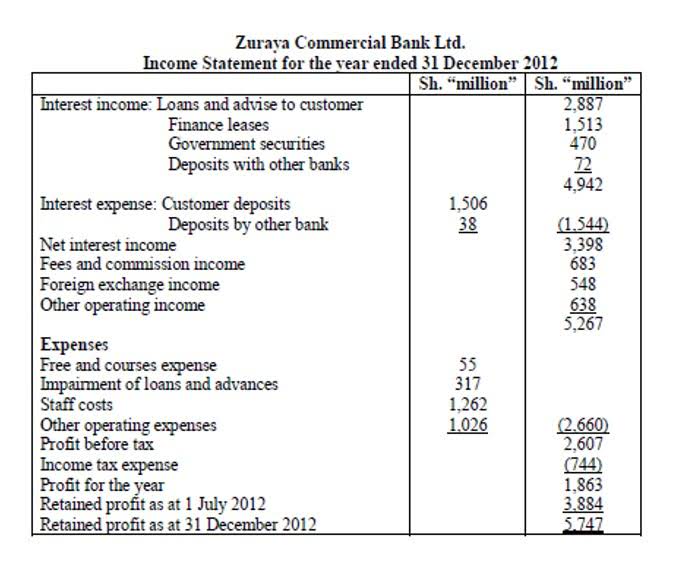
Similarly, during dissolution, any remaining assets should go to another nonprofit and not be remunerated as distributions. Differentiating restricted funds from unrestricted funds is crucial for transparency. Identify these funds properly to ensure accountability to donors and regulatory entities. Many nonprofits need help with preventing a few common mistakes in their bookkeeping. Avoiding these pitfalls lays out a smoother journey toward financial transparency. Nonprofits have daily operating costs similar to other organizations, like salaries, supplies, utilities, etc.
These credits are essential as they enable survivability during difficult financial periods. If you are unsure which forms are required for your organization, we are here to help you figure it out. The entire engagement team, from staff members to partners, is always committed to a high standard of work from both us as the client and ourselves as the auditor. I have worked with McKonly & Asbury for nearly 10 years, and in that time, I have had a great experience working with the firm even through some difficult audits. I believe that McKonly & Asbury understands the challenges that their clients face and view their client relationships as true partnerships.
Let us worry about your Nonprofit bookkeeping!
Of course, you can always generate financial statements manually, but this takes a lot of time and skill. Nonprofit and for-profit organizations follow certain similar fundamental accounting practices. These contributions have no stipulations and can be utilized freely to accomplish the organization’s diverse needs, be it operational costs, programs, or projects. The flexibility aids nonprofits in maintaining cash flow, handling unforeseen expenditures, and budgeting effectively. Essentially, you should view bookkeeping as the financial oversight process that’s necessary for operating your nonprofit daily.

Meticulous and thorough bookkeeping is essential in order to properly manage cashflow, tax compliance, profitability and business planning. Without precise and thorough bookkeeping, a business is ill-equipped to make sound business decisions in the short- and long-term. Once you’ve established your designated bank account for your nonprofit, you’ll Bookkeeping Services in Lancaster need to make sure that the data on your bank statements align with the data in your bookkeeping system. To do that, you’ll compare each transaction on your bank statement with the corresponding transaction in your books to make sure they line up. These groups are just one way of keeping nonprofit organizations on track with their finances.
Allocating expenses
One of the biggest differences is each one’s approach to its bookkeeping method. Nonprofits approach bookkeeping by focusing more on the accountability aspect when it comes to their bookkeeping method and process. After you’ve registered as a nonprofit with your state, the next step is to apply for tax-exempt status under Section 501. Nonprofits have tight rules around what they can and can’t spend money on.

Expenses incurred typically include travel, postage, salaries, rent, fundraising expenses, and financial services. It indicates how profitable the organization was during a given time period. It’s basically a financial statement that shows quarterly or annual revenue minus losses and expenses. Jitasa’s experienced nonprofit accountants will set your organization up with a cloud-based accounting system and chart of accounts to guide the financial aspects of your daily operations. We’ll also handle a variety of analysis and reporting tasks, such as reconciling accounts, compiling financial statements, and issuing 1099s. Just like the statement of financial position, the statement of activities keeps net assets that have conditions and stipulations attached to them separate from unrestricted funds.
Trending Searches in Lancaster, CA
For example, bookkeeping ensures your nonprofit uses its revenue wisely and maintains its tax-exempt status. Accounting, on the other hand, is using that information to provide a detailed analysis of your finances. For-profit organizations use their accounting system to track net income, while non-profits keep a statement of financial position, which can be used to further the mission of the organization. Your nonprofit status brings with it responsibilities and obligations to demonstrate that the public funds and donations needed to run the organization are being used properly. Our years of experience working with nonprofits ensures that you get access to experts that understand what is required to do this and keep nonprofits thriving. A nonprofit’s revenue usually includes program fees, membership dues, donations, sales income, proceeds from fundraising events, and investment income.
- The basis for an accurate bookkeeping and accounting system is recording all financial transactions.
- Nonprofits are required by law to provide the public with their annual IRS returns.
- Your nonprofit has important work to do, but limited resources to do it with.
- Yes, at a basic level, a nonprofit must keep accurate records of all income and expenditures, just like any other organization.
